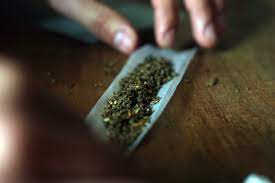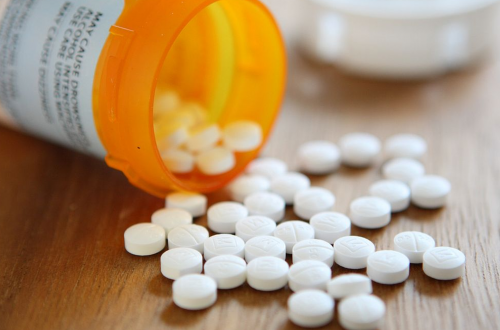The duration of the addiction treatment depends on many factors, but with medical supervision, progress can be achieved whether one is doing it at a slow pace or not and that matters most. It is important to get an overview of how long treatment can take so that a person can prepare their disposition as soon as they begin their treatment.
Consult with your doctor to get a personalized program for your recovery. By knowing the duration, you can better prepare yourself for this life-changing event.
Addiction programs for substance abuse last from 30 to 90 days. However, it is important to understand that overcoming addiction could sometimes be a life-long journey. Relapse can happen suddenly at any time, depending on several triggers. The key to staying sober is to keep a healthy lifestyle in both physical and psychological aspects.
How Long Does Marijuana Withdrawal Last
 Addiction treatment begins with detoxing from marijuana and this does not happen without experiencing the withdrawal pain. As for the case of using marijuana, withdrawal pain is less fatal than withdrawal from other substances such as heroin, cocaine, and opioids. However, it does not exempt one from experiencing a burden that affects day-to-day life.
Addiction treatment begins with detoxing from marijuana and this does not happen without experiencing the withdrawal pain. As for the case of using marijuana, withdrawal pain is less fatal than withdrawal from other substances such as heroin, cocaine, and opioids. However, it does not exempt one from experiencing a burden that affects day-to-day life.
Insomnia and mood swings as well as anxiety and depression are the common symptoms of marijuana withdrawal. This may start kicking in a week after ceasing to use the substance and usually peaks on the 10th day. Withdrawal symptoms may continue to persist for two weeks, and this duration is different in every person. Some can go on for several months.
When it comes to using marijuana, some people may not experience severe pain when withdrawal starts. However, the absence of marijuana in the body can affect thought which results in poor judgment and becoming vulnerable to accidents. Using marijuana is also highly known for intense cravings during withdrawal. This follows that quitting is not easy.
It will most likely take about 3 months to fully get rid of marijuana in the body. This is the typical duration among individuals who use marijuana daily. Having known this timeframe, it may be recommended to get into a 90-day treatment, especially among excessive users. This is also the ideal length that addiction experts persistently suggest.
Is a 30-day Marijuana Addiction Treatment Enough
 Most insurance companies only cover the cost of addiction treatment for 30 days and this is most likely one of the reasons why a lot of people perceive that this is enough time to overcome addiction. Addiction experts continue to insist that treatment must last for 90 days in order for it to be effective in helping one reach sobriety.
Most insurance companies only cover the cost of addiction treatment for 30 days and this is most likely one of the reasons why a lot of people perceive that this is enough time to overcome addiction. Addiction experts continue to insist that treatment must last for 90 days in order for it to be effective in helping one reach sobriety.
It is important to note that addiction treatment involves identifying personal triggers to addiction and building coping skills to overcome it. These do not progress at a rapid speed. It takes time to heal from within, form new habits, and develop a new outlook in life in order to keep oneself drug-free.
However, this 30-day treatment plan is a great start in allowing oneself to stabilize both mind and body for further treatment. It may be enough to enroll in a 30-day program at the start and then decide what interventions can work for oneself later on. Perhaps, inpatient treatment is necessary to advance or outpatient care will suffice.
Although the number of days in a treatment plan cannot fully guarantee recovery in the long run, it allows one to move one step forward. The more time one is given to take a single step, the further they can progress in their treatment and reach their goal. Limiting one’s treatment to the minimum length is also limiting one’s chances to grow.
Progress counts a lot in determining how long an addiction treatment should continue, and the commitment to dedicate oneself to staying away from marijuana is what fuels progress. Given the right amount of support from families and friends helps one sustain recovery. To really reach the goal, one must consider overcoming addiction as a life-long process.
Factors Which Can Prolong One’s Marijuana Addiction Treatment
Many factors affect a person’s progress during their addiction treatment to marijuana. It is important to understand which level of addiction they fall into as this can also be the basis for whether their treatment needs to take long or not. Another factor to note is one’s overall health condition.
Level of addiction
 The level of one’s addiction depends on how long they have been using marijuana, and how many doses they take in a week. These factors typically strengthen the level of physical dependence on the substance and increase the body’s tolerance towards it. If one has reached this point, it may be difficult for them to remove marijuana from their life.
The level of one’s addiction depends on how long they have been using marijuana, and how many doses they take in a week. These factors typically strengthen the level of physical dependence on the substance and increase the body’s tolerance towards it. If one has reached this point, it may be difficult for them to remove marijuana from their life.
The Diagnostic and Statistical Manual of Mental Health Disorders has listed 11 criteria to determine a person’s level of addiction. Experiencing more than 6 from this list classifies one to have a serious level of addiction, experiencing 3 to 5 classifies one’s level to moderate, and finally, 1 or 2 experiences identify one at a mild level.
Understandably, a person with severe addiction requires a longer treatment to overcome the use of marijuana compared to those in the lower levels. Marijuana is a substance that is very difficult to quit, and treatment is highly essential in order to overcome it.
Overall health condition
The pregnant, the elderly, individuals with serious physical illnesses, or those with underlying mental disorders on top of their addiction to marijuana need a prolonged type of care. Their addiction treatment requires an intensive process since the risk of serious health complications is likely to arise in the middle of overcoming their marijuana addiction.
Individuals who suffer from underlying mental health disorders must also be attended to with special care. As it is one thing to treat their marijuana addiction, it is also another thing to treat their mental health. This is commonly known as dual diagnosis, and when one reaches this level, treatment is expected to be longer than usual.





